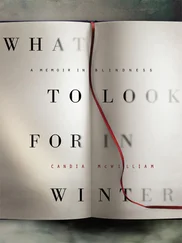Edeet Ravel - Look for Me
Здесь есть возможность читать онлайн «Edeet Ravel - Look for Me» весь текст электронной книги совершенно бесплатно (целиком полную версию без сокращений). В некоторых случаях можно слушать аудио, скачать через торрент в формате fb2 и присутствует краткое содержание. Жанр: Старинная литература, на английском языке. Описание произведения, (предисловие) а так же отзывы посетителей доступны на портале библиотеки ЛибКат.
- Название:Look for Me
- Автор:
- Жанр:
- Год:неизвестен
- ISBN:нет данных
- Рейтинг книги:5 / 5. Голосов: 1
-
Избранное:Добавить в избранное
- Отзывы:
-
Ваша оценка:
- 100
- 1
- 2
- 3
- 4
- 5
Look for Me: краткое содержание, описание и аннотация
Предлагаем к чтению аннотацию, описание, краткое содержание или предисловие (зависит от того, что написал сам автор книги «Look for Me»). Если вы не нашли необходимую информацию о книге — напишите в комментариях, мы постараемся отыскать её.
Look for Me — читать онлайн бесплатно полную книгу (весь текст) целиком
Ниже представлен текст книги, разбитый по страницам. Система сохранения места последней прочитанной страницы, позволяет с удобством читать онлайн бесплатно книгу «Look for Me», без необходимости каждый раз заново искать на чём Вы остановились. Поставьте закладку, и сможете в любой момент перейти на страницу, на которой закончили чтение.
Интервал:
Закладка:
Rafi walked next to me. He wasn’t carrying a blanket. With his left hand he held his right arm against his midrif . We didn’t speak.
It took us nearly an hour to reach the other end of the restricted road. But some of the set ler children from Elisha, along with three or four men, had moved down the road in anticipation of our descent from the hil s, and they were there now, waiting for us. The women and most of the men had returned to the lit le hamlet with the burgundy roofs to prepare for the Friday night meal. In an hour the sun would set and they’d al be gone. But the Palestinians waiting for us couldn’t travel through the mountains at night. If we didn’t get there soon, they’d be forced to disperse.
A teenage girl wearing a long navy skirt and a loose white blouse held a sign that said, The Left is insane, support bin Laden.
“Why should I support bin Laden, I don’t understand,” a bald man standing next to me joked. He lit a cigaret e, cupping his hand around the flame.
Next to the girl stood a lit le boy with earlocks. He’d forgot en al about his sign; he was too busy staring at us as we came down from the hil s, and he seemed trans xed by our appearance. I felt he was drawn to us on some level, and I wondered whether he would dream about us tonight, two hundred Jews and a few Arab citizens, bare arms hugging gray-blue and salmon pink blankets, shoes covered with dust, descending in haphazard formation from the hil s. Then he remembered his sign, and held it up. Us here, the Palestinians there: transfer.
“There, where?” the bald man said, to no one in particular. “Antarctica?”
“Don’t move,” the soldiers told us. They ordered the set lers to go home, but the set lers refused, and when one of the o cers tried to herd them along, a puf y-faced teenage boy kicked him fiercely in the shin. The of icer swore.
We couldn’t wait any longer. We began walking alongside the road, trying to avoid the set lers. Luckily, they didn’t fol ow us or try to block our way. A soldier beside me stopped to urinate. I took a photograph of him, urinating casual y in the midst of the turmoil, reduced for a few seconds to an ordinary human who needed to pee. Tomorrow he could be dead.
He saw me photographing him.
“Hope you don’t mind,” I said.
He shrugged. “I don’t know what you guys are doing here,” he said, walking next to me. He lit a cigaret e.
“I’m here to take pictures. I believe in the cause, though.”
“You’re a photographer?”
“I take photos of the conflict.”
“How? You can’t predict where or when there’s going to be shooting.”
“Wel , I don’t photograph combat, of course. I just go wherever I can. Checkpoints, demonstrations, al sorts of activities. The closest I came to combat was Dar al-Damar. I managed to get in a day after the bat le ended—there were stil some bodies lying in the al eys, covered in sheets, waiting to be buried … I have thousands of photographs.”
“Aren’t you afraid of your name ending up in the obituaries?”
“Aren’t you afraid of your name ending up in the obituaries?”
He shrugged. “Yeah, I’m afraid. Sort of.”
“Then refuse to come here.”
“What’s this, a lesson in politics?”
“Refuse.”
“I can’t, I need the money. I don’t get a salary in jail.”
“Say you have a bad back.”
“Any more advice?”
“Why risk your life?”
“Look who’s talking! Miss War Photographer …”
“I go with groups. The Palestinians usual y know who we are.”
“Usual y might be the operative word there.”
“It’s not dangerous. We’re careful, everything is arranged in advance. We coordinate our activities with the Palestinians.”
He gu awed. “An entire family was kil ed thirty meters from here last week. Don’t you read the papers? You look too smart to be so stupid.”
“You look too nice to be kil ed for nothing,” I said.
“It isn’t for nothing. It’s to protect idiots like you.”
“It isn’t for nothing. It’s to protect idiots like you.”
“It’s to keep control of land that doesn’t belong to us. It’s to protect those losers from Elisha.”
“Talk to the government, not to me.”
“Fine, as long as you’re dying for something!”
Al at once, his body tensed and he was no longer with me: something was happening, and he felt the entire burden of it. The transformation was astonishing; one moment he was smoking and talking easily to me, the next he was afraid, alert, aiming his weapon and ready to shoot. But it turned out to be nothing: ve soldiers were running wildly through the crowd, not because of Palestinians, but because of two lit le boys from Elisha who had decided to sneak up and at ack us. I took a photograph of the ludicrous sight: ve armed men chasing two lit le boys, their earlocks bobbing as they ran, wide mischievous grins on their faces. The soldiers caught up with them. “Stop!” an o cer ordered, and his voice was so stern that the boys froze. “Home!” he barked at them, and they obediently turned back.
A few minutes later we reached the turno . Palestinians with tractors and wagons were waiting for us. “You made it! You made it! Our good friends!” they exclaimed, laughing happily.
We piled the blankets on the wagons and started up a narrow trail toward one of the caves. The trail curled around the hil s and the tractor’s wheels as it churned along were so precariously close to the edges that I couldn’t bear to look. The light was fading, and it was nearly dark by the time we arrived at a smal clearing. A group of twenty cave dwel ers stood huddled next to three sturdy tents and a donkey. Most had had to leave, but this smal group had stayed to greet us.
A boy of ve or six came up to us, his arm outstretched. “Ahlan wa-sahlan,” he said. Ra and I shook his tiny brown hand. The cave-dwel ers were very smal ; the adults were not much tal er than the ten-year-olds. Two women o ered us co ee, and an old man wearing a robe made a speech. “I hope one day we wil have real peace,” he said, “and not a mock peace. And we wil eat together and pray together.”
Two Palestinian boys began to giggle. They were looking at the women demonstrators and nudging each other. I wanted to photograph them, but decided against it; they’d be embarrassed.
It took us a long time to get back to our cars. The road was clear now; the set lers had gone home for the Sabbath meal. I imagined the adults sit ing around the table and explaining to their children what the word traitor meant: we were traitors to the faith, aspirations and dreams of our own people. We helped the enemy. God would punish us; we’d end up dead as dormice.
An army truck gave the organizers lifts to their cars, and the organizers returned to pick up more people. By the time we were al ready to go it had been dark for some time.
Ra couldn’t drive, because of his arm, so I drove. Daniel had insisted I learn to drive when we married, but our car broke down shortly after he vanished and I never bothered get ing a new one. Rafi laughed. “I think you may be the worst driver I’ve ever encountered,” he said.
“I’m out of practice.”
“Go into fourth,” he said.
“I am in fourth.”
“You’re in second.”
“Oh. Yes, that’s bet er. Should we drive to a hospital?”
“No, it’s just a sprain. Asshole.”
“That was hard to watch.”
He smiled. “Did you get a good shot?”
“I couldn’t.”
“Too chaotic?”
“No, I felt too sick.”
“Not very professional,” he teased.
I thought for a moment. “You’re right. I’m usual y more detached. Not exactly detached …but in control. Otherwise I wouldn’t be any use.
Читать дальшеИнтервал:
Закладка:
Похожие книги на «Look for Me»
Представляем Вашему вниманию похожие книги на «Look for Me» списком для выбора. Мы отобрали схожую по названию и смыслу литературу в надежде предоставить читателям больше вариантов отыскать новые, интересные, ещё непрочитанные произведения.
Обсуждение, отзывы о книге «Look for Me» и просто собственные мнения читателей. Оставьте ваши комментарии, напишите, что Вы думаете о произведении, его смысле или главных героях. Укажите что конкретно понравилось, а что нет, и почему Вы так считаете.












